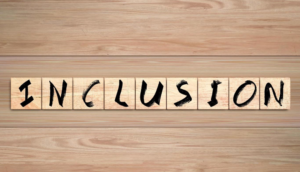
LACK OF ACADEMIC ACCOMMODATIONS: AN INDIAN COLLEGIATE EXPERIENCE

Introduction
Even though the Indian educational system has undergone significant changes recently, there is still a long way to go before it can offer students with disabilities adequate academic accommodations.
Many disabled students still encounter significant obstacles to their academic performance, such as a lack of access to accommodations that would enable them to fully engage in their schoolwork.
This article tries to examine the obstacles a college student from India encountered since there were insufficient academic accommodations.

The Issue
In many nations, including India, the dearth of academic accommodations for students with disabilities is a serious problem. The implementation of these policies at the institutional level is frequently poor, despite the government’s efforts to develop policies and guidelines for accommodating students with disabilities. As a result, many disabled students face considerable obstacles to academic success.
Students who suffer from physical infirmities, vision problems, or hearing loss are most affected by this problem. To properly participate in their courses, these students frequently need specialized accommodations, such as sign language interpretation, audio explanations, and assistive technology. Students with impairments are frequently left behind because many educational institutions are ill-equipped to offer these modifications.
The absence of academic accommodations for students with disabilities goes beyond issues of justice and equity; it also violates a number of laws and statutes. For instance, in India, educational institutions are required to make reasonable accommodations for students with disabilities under the Rights of Persons with Disabilities Act, 2016, which came into effect in 2017.
Many educational institutions in India still fall short when it comes to making academic accommodations for students with disabilities, despite these legal obligations. For some students, this may have major repercussions such as decreased academic performance, increased stress and anxiety, and reduced job opportunities.
The Situation
Due to the absence of academic accommodations, Kavita (pseudonym), a student with a hearing disability, has encountered major difficulties throughout her college career. Kavita struggled to keep up with her studies at college despite having excelled academically in high school, especially in subjects where lectures were the main source of instruction.
She had trouble understanding her lecturers and fellow students, and she frequently missed crucial information because she couldn’t hear it. Kavita made numerous requests for adjustments from her teachers and the college administration, such as a sign language interpreter, captioning for films, and help taking notes. She was informed that the college was ill-equipped to make accommodations for students with disabilities, but her requests were frequently refused.
Sadly, Kavita’s experiences are not unusual. When it comes to getting academic accommodations, many disabled students in India experience similar difficulties. Although the government makes an effort to develop policies and guidelines for assisting students with disabilities, these guidelines are frequently not effectively implemented at the institutional level.
Discussion
A serious issue that requires immediate attention is India’s dearth of academic accommodations for students with disabilities. In accordance with the Rights of Persons with Disabilities Act of 2016, access to accommodations is not simply an issue of fairness and equity.
Regardless of any limitations, educational institutions have a duty to make sure that every student has access to a quality education. Educational institutions must take action to put rules and standards for offering academic accommodations to students with disabilities into place in order to solve this problem.
In order to do this, it is vital to train faculty and staff on how to accommodate students with various impairments, make sure that all course materials are accessible, and, when necessary, provide assistive technology and equipment.

Students with disabilities should also have the freedom to speak up for their rights and request the modifications they require in order to thrive academically. Peer support groups, awareness-raising efforts, and campus disability services offices can all help with this.
The Way Forward
Disabled students in educational institutions encounter many difficulties, which include discrimination and social alienation. In order to tackle this issue, it is crucial that inclusive policies and practices be adopted that promote equal opportunities for all regardless of their abilities.
As Saltaga (Saltaga, S. (2017). “Students’ experiences of othering: recommendations for inclusive classroom climates”. (Master’s thesis). Boise State University, contends, embracing such guidelines can counter the othering of disabled pupils in school settings.
Othering refers to how we treat or see others as different from ourselves, leading to exclusion and challenges for those seeking higher education. Saltaga’s (Saltaga, S. (2017). “Students’ experiences of othering: recommendations for inclusive classroom climates”. (Master’s thesis). Boise State University, study revealed the experiences of twelve disabled individuals with othering; highlighting how difficult it is for them to navigate an environment where they feel detached or dissimilar from others.
This study underlines the importance of creating a classroom climate that supports inclusivity and equality among all students while being mindful of individual differences. Consequently, implementing inclusive policies and practices plays a critical role when dealing with the problem faced by disabled individuals who experience otherization within academic institutions.
Educators must make suitable adjustments that reflect their willingness to accommodate varying needs while also providing an environment free from judgmental attitudes towards disabilities. By doing so, we create environments where everyone has an opportunity for success rather than perpetuating existing inequalities based solely on disability status alone (same). So let us join hands in ensuring every student feels included!







